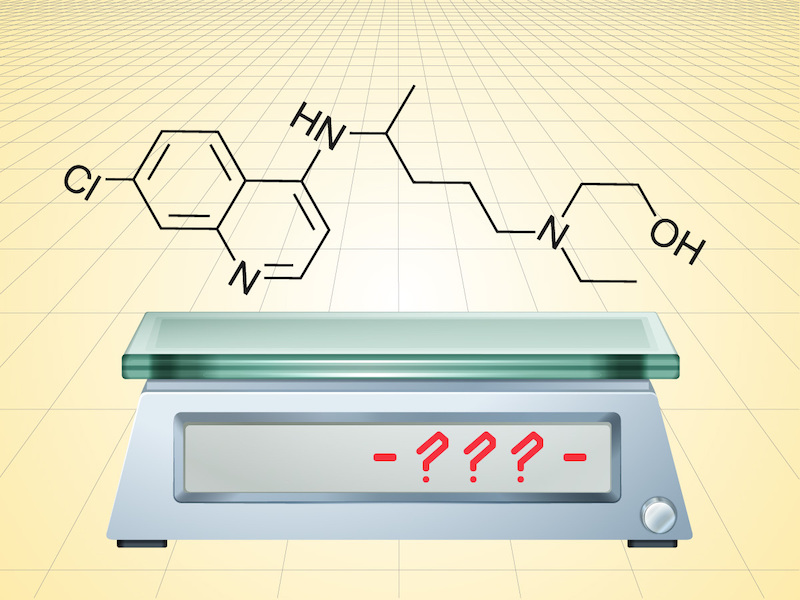Hydroxychloroquine and COVID-19: What we know so far

Despite the current hype, infectious disease experts and others are cautious about using chloroquine drugs in the current COVID-19 pandemic. While the urgent need for COVID-19 treatments justifies the rapid pace of trials, several concerns have been raised related to the limitations of studies published so far.

The drugs chloroquine and hydroxychloroquine are widely used to treat malaria and some autoimmune diseases like rheumatoid arthritis and lupus. A few recent clinical studies have described how these drugs may help eliminate or clear the SARS-CoV-2 virus, which causes COVID-19 disease, from the body when given in addition to standard care or when combined with other anti-infective drugs.
To review what’s known about the drug and its potential for treating patients with COVID-19, we spoke with Kristin Moffitt, MD, infectious disease expert at Boston Children’s Hospital.
What have recent studies revealed about using hydroxychloroquine in COVID-19 patients?
Earlier research has shown us that chloroquine successfully interferes with the machinery of the original SARS coronavirus from 2003. Because SARS-CoV-2 belongs to the same virus family, the concept of using the anti-malaria drugs is under renewed consideration.
Some health care providers began intermittently using chloroquine to treat some of the first patients with COVID-19. Simultaneously, interest in these drugs has grown from several recent preclinical/laboratory-based studies. In particular, two laboratory studies from research groups in China showed that chloroquine and hydroxychloroquine killed SARS-CoV-2-infected cells.
What we know about how the drugs work in people with COVID-19 comes from a small number of studies a small number of patients. Hydroxychloroquine, a less toxic derivative of chloroquine, has been evaluated in several recent studies.
In a small study of 36 patients in France, hydroxychloroquine and azithromycin, a commonly used antibiotic, appeared to improve the rate of virus clearance from the nasopharynx, the upper part of the throat behind the nose where the virus replicates and survives well. The same group recently published a study among an additional 80 patients showing the same result, but there was no comparison, or control group, in this study. However, a small trial of 30 patients in China comparing hydroxychloroquine with standard treatment alone showed that hydroxychloroquine was not more effective in viral clearance or improving symptoms in patients with mild COVID-19.
Finally, a more recent study of 62 patients in Wuhan, China with mild or moderate illness reported that patients receiving hydroxychloroquine experienced a reduction of symptoms by about one day. Also, chest images showed that pneumonia appeared to clear more quickly when compared with patients receiving standard treatments.
We also know that hydroxychloroquine calms inflammation, a reason why it is widely used for autoimmune diseases. Research has shown that some of the devastating effects of COVID-19 are related to an over-exuberant immune response. The result is a so-called “cytokine storm” — overproduction of inflammatory molecules called cytokines. It is hypothesized that hydroxychloroquine may be useful in tempering this cytokine inflammation, but further studies are needed to validate the actual benefit.
What do you make of all these studies?
The clinical studies in COVID-19 patients have had some serious limitations. For example, the French studies were not randomized, meaning the researchers did not systematically and randomly compare a treatment group with a control group receiving conventional care. Since many patients with mild symptoms of COVID-19 infection ultimately improve without intervention, lack of a control group makes it difficult to determine whether the outcomes were due to the drug or not. Further, several patients receiving hydroxychloroquine were not included in the final analysis because they were transferred to critical care settings. This finding suggests that these patients became more ill despite treatment.
Additionally, these early studies had small patient sample sizes and were not blinded or placebo-controlled: Patients and physicians knew whether patients in the studies were receiving hydroxychloroquine or not. This could introduce bias into more subjective assessments of patient outcomes, such as improved shortness of breath or cough. Nevertheless, these reports do suggest the possibility of some benefit and thus highlight the interest in further study.
What are the potential concerns about using hydroxychloroquine in COVID-19?
While generally safe, both chloroquine and hydroxychloroquine have been associated with side effects, including toxicity to the heart and abnormal metabolism of the drug in patients with liver or kidney disorders. For patients with certain underlying abnormal heart rhythms, these medications can intensify these abnormalities and potentially pose a danger.
Some adults taking hydroxychloroquine long-term for rheumatologic conditions have developed cardiomyopathy, leaving the heart weakened and unable to pump efficiently, as well as damage to the retina of the eye. Finally, taking hydroxychloroquine with some diabetes medications like metformin can dangerously increase the effects of that diabetes medication.
What would you recommend for patients or physicians interested in hydroxychloroquine?
Since chloroquine and hydroxychloroquine can have serious side effects, they should only be considered for COVID-19 treatment as part of a clinical trial, or upon the recommendation of a health care professional experienced with treating COVID-19.
In addition to the need for larger, more rigorous clinical trials to clarify whether hydroxychloroquine is effective for COVID-19, we need more information on when drug therapies may be most effective in the course of patients’ illness trajectory. We also need controlled scientific studies about the use of hydroxychloroquine to treat COVID-19 in infants, children, and adolescents to expand our understanding of how the disease is best treated from birth to adulthood.
At the time this story was published, close to 70 hydroxychloroquine clinical trials are currently in progress worldwide for COVID-19-positive patients. Eighteen new U.S. trials have been announced, with nine recruiting patients.
Get more answers about Boston Children’s response to COVID-19.
Related Posts :
-

No limitations: How Flora found answers for MOG antibody disease
Flora Ringler’s fifth birthday didn’t turn out as she had hoped. She and her family were vacationing in ...
-

What orthopedic trauma surgeons wish more parents knew about lawnmower injuries
Summer is full of delights: lemonade, ice cream, and fresh-cut grass to name a few. Unfortunately, the warmer months can ...
-

Partnering diet and intestinal microbes to protect against GI disease
Despite being an everyday necessity, nutrition is something of a black box. We know that many plant-based foods are good ...
-

‘They never stopped trying to figure out what was happening’: RyennAnne’s encephalitis journey
When 5-year-old RyennAnne Hurst developed a bad sore throat last summer, her doctor thought she might have strep and prescribed ...





